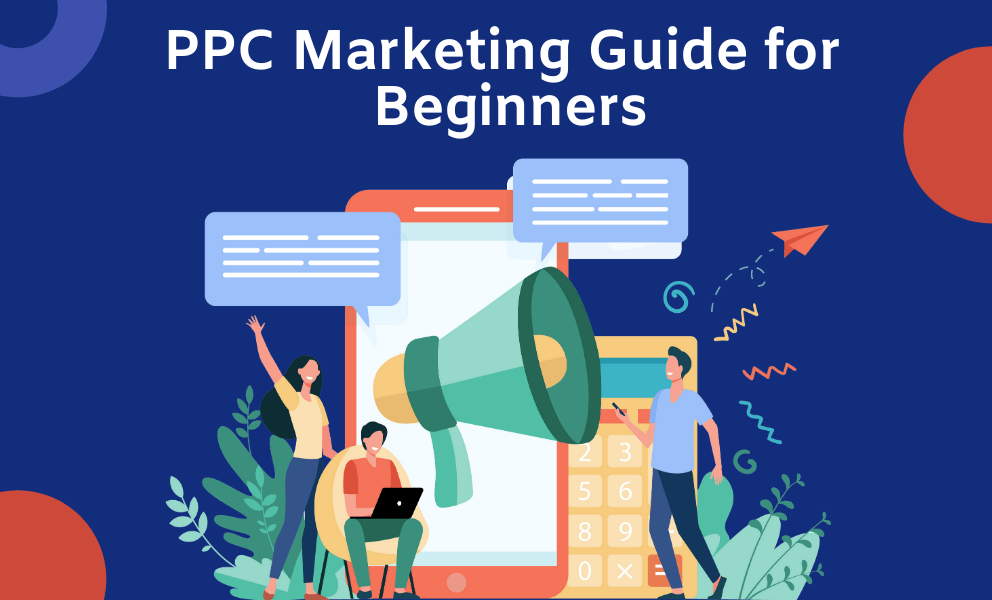

niraj kacha
november 15, 2020
If you have ever seen the ads that appear beside search results on Google, Bing and other search engines, then you are already aware of pay-per-click advertising.
What is PPC Advertising?
SEO full form in digital marketing is Search engine optimization. SEO includes successfully achieving the topmost position or ranking in the organic listings of the search engine results pages (SERPS) across a collection of specific combinations of keywords entered by the user.
PPC campaign goals, including:
- Increasing sales
- Endorsing brand awareness
- Generating leads
How Does PPC Advertising Works?
PPC has 3 main important parts. Advertisers, PPC network and publishers. Advertisers are businesses, companies or persons who use PPC platforms in order to promote their products and services. They pay the PPC network to show their advertisements on their network.
However, ppc advertising is a broad category, which includes a wide variety of platforms and mediums. They are distinguished between five categories: Search Ads, Shopping Ads, Display Ads, Video Ads and Gmail Ads.
who gets to look on the webpage is based on an advertiser’s Ad Rank, a metric calculated by multiplying two key factors – CPC Bid and Quality Score. This structure allows winning advertisers to reach potential customers at a cost that fits their Campaign budget. It’s basically a kind of auction.
How to manage PPC campaigns?
Once you've set up your PPC campaigns, it's essential to carefully manage them so they can continue to perform well for you. We have mention ppc beginners guide steps to manage your campaigns effectively:
- 1. Use multiple campaigns at once
- 2. Manage your landing pages
- 3. Track your campaign results
- 4. Practice remarketing
1. Use multiple campaigns at once
There's no need to finish one campaign before you begin another. You can run several campaigns concurrently to increase your probabilities of showing up in search results. Expand your campaigns to reach a broader audience overall. For example, you might use a mobile-only ad bid that contains a geographic location extension and product-specific keyword to help customers find your store while they're looking for a specific product item. Another campaign may target computer consumers who are in the research stage by using a related keyword that will help them learn more about your ingredients and development process.
2. Manage your landing pages
Make sure the landing webpages for your PPC campaigns are accurately designed. These webpages should never be outdated. If your products or services alter, you need to update your landing pages instantly. You can also optimize your campaigns by updating your landing pages with the modern promotions or seasonal products. You may maintain the same campaign targeted to coupon-related keywords but update the landing page weekly so it continuously offers current deals.
3. Track your campaign results
Wisely evaluate your PPC campaigns to see how they're performing. You can use A/B testing to compare two similar keywords before settling on the selection that you'll put more funds, marketing materials and effort behind. Use the gen you collected from your PPC campaigns to adjust your sales and marketing approaches for more effectiveness going forward. Place more importance on the keywords that get the highest conversion rates and consider removing those with high bounce rates. Concentrating on analytics will help you generate more effective campaigns for the upcoming time.
4. Practice remarketing
Remarketing helps targeted ads to customers who have already visited your page. Analyse the requirements of users who spent time on your page but didn't convert into a potential lead or sale. Create PPC campaigns targeted to those needs to recall these individuals. Remarketing campaigns will place your goods and services in front of previous visitors constantly, so your brand stays at the front of their minds and is a likely nominee when they're ready to make a purchase.
Why Should You Use PPC?
There are many convincing benefits of pay-per-click advertising:
- PPC marketing is measurable and tractable. You can see how your campaigns are performance, including impressions, clicks, and conversions, the traffic you’re getting and how the results compare to your budget
- Your ads work on all platforms such as mobile and desktop devices
- It also provides a better understanding of the behaviour and search patterns of the user.
- You get a wealth of targeting preferences, whether you need to target keywords through search ads or focus on a precise demographic on the display network
- In Contrast to SEO, PPC permits you to quickly set up campaigns, generate ads and find new leads and visions
- You get budget flexibility. You can arrange your ad budget and select how much money you want to spend for a particular campaign. For example, if you see positive results, you can measure up quickly
What is the ROI for PPC?
When used successfully, PPC advertising can be an extremely effective method to reach a new audience and bring in new potential customers. In fact, PPC visitors are 50% more likely to buy something from a website than organic visitors!
Final Thoughts
This blog provides all about PPC. KiWeb Solution - search engine marketing company in Vadodara focuses on covering all the topics you’ll essential to start or get into soon after generating your PPC accounts. If you’re interested in knowing more about PPC campaigns that are right for your business, give us a call - we would be pleased to help!